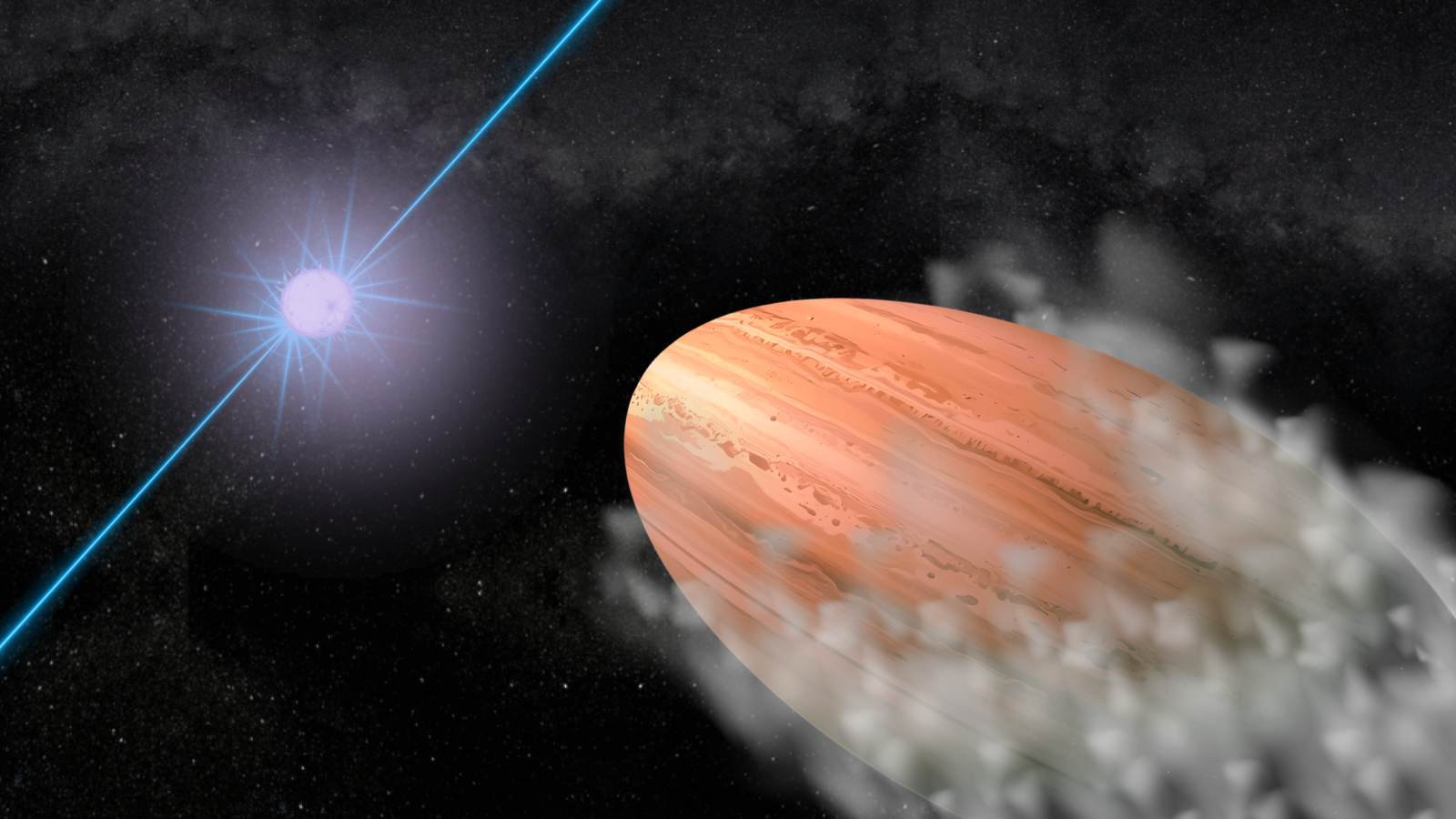Keith Cooper is a freelance science journalist and editor in the United Kingdom, and has a degree in physics and astrophysics from the University of Manchester. He's the author of "The Contact Paradox: Challenging Our Assumptions in the Search for Extraterrestrial Intelligence" (Bloomsbury Sigma, 2020) and has written articles on astronomy, space, physics and astrobiology for a multitude of magazines and websites.
Latest articles by Keith Cooper
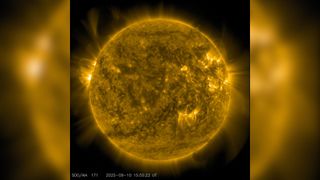
'The sun is slowly waking up': Scientists say a rise in solar storms awaits us
By Keith Cooper published
The turning point seems to have been after 2008, which had the lowest amount of solar activity on record.

New space junk removal idea: Using ion engine exhaust to knock debris out of the sky
By Keith Cooper published
With a modest amount of thrust and power, a new ion engine system could get rid of 1-ton pieces of space junk in less than 100 days. Here's how it works.
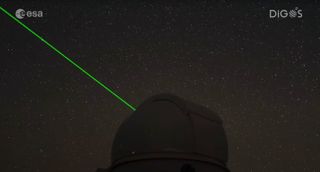
These 2 European telescopes use lasers to track potentially dangerous space junk (video)
By Keith Cooper published
The laser system provides real-time positional data on the huge cloud of space debris above our heads in low Earth orbit.
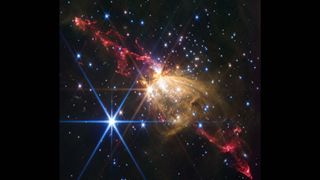
James Webb Space Telescope images enormous star shooting out twin jets 8 light-years long
By Keith Cooper published
The James Webb Space Telescope caught the birth of an enormous star with particle beams cutting across a stretch of interstellar space.
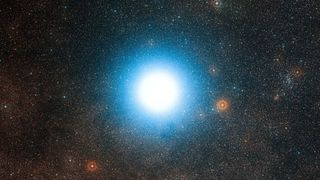
Spacecraft launcher named for robot in 'Interstellar' could help us reach another star system. Here's how
By Keith Cooper published
A new low-cost concept for interstellar travel combines solar power with a slingshot, but it would take a long time to reach the stars.
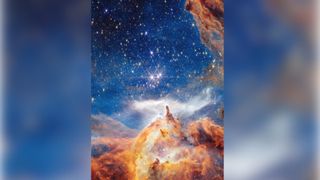
Triple star system burns bright in new image from the James Webb Space Telescope
By Keith Cooper published
One member of the cluster was previously believed to be the most massive star known, but is actually a triple star system of huge stars, all of which will go supernova.
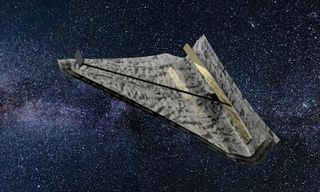
Could a unique rectangular telescope be the key to finding Earth 2.0?
By Keith Cooper published
A new concept for a next generation space telescope could provide an affordable breakthrough in the hunt for Earth's twin.

A dead 'sun' forms building blocks of exoplanets in new JWST Butterfly Nebula image
By Keith Cooper published
The Butterfly Nebula, which is a planetary nebula resulting from the death of a sun-like star, has been caught creating large dust grains that could form planets.

Why are our solar system planets tilted? These warped exoplanet-forming disks may offer clues
By Keith Cooper published
Although the existence of the warps is widespread, their origin is still a mystery.
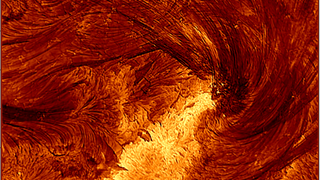
World's most powerful solar telescope sees incredible coronal loops on the sun (image)
By Keith Cooper published
The narrowest magnetic loops ever seen in the sun's corona have been imaged by the most powerful solar telescope on Earth.
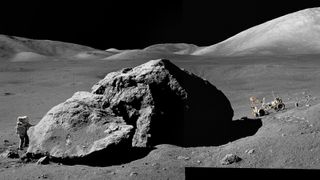
What caused the only known lunar landslide? Newly opened Apollo 17 moon samples may hold the answer
By Keith Cooper published
A mysterious lunar landslide might have been caused by debris from a faraway crater-forming impact, new analyses of Apollo 17 moon samples suggest.
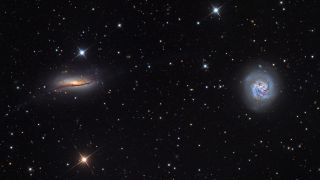
Pair of colliding galaxies may hint at the fate of the Milky Way and its closest galactic neighbor
By Keith Cooper published
The impending merger of the two galaxies hints at what might be in store for the Milky Way and the Andromeda galaxy if and when they collide.

Supernovas are hard to detect. Scientists just found a way to spot them hours after they explode
By Keith Cooper published
Astronomers have learned how to find supernova explosions in their earliest stages, giving us an unprecedented look at how these stars blow up.

What if we've been thinking about dark matter all wrong, scientist wonders
By Keith Cooper published
Two exotic new theories suggest dark matter could be either made from tiny black holes or formed by Hawking radiation at the cosmic horizon.
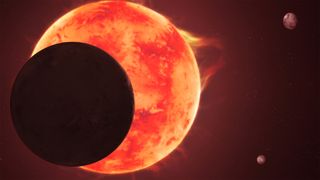
TRAPPIST-1d isn't the Earth-like planet scientists had hoped it to be, according to JWST data
By Keith Cooper published
As another world around TRAPPIST-1 shows no signs of an atmosphere, astronomers urge us not to give up hope for an Earth-like atmosphere on one of the other worlds in the system.
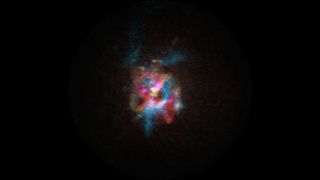
Red supergiant star expels mysteriously large cloud of gas
By Keith Cooper published
The star, called DFK 52, is a member of a cluster of similar red supergiants, but it's losing mass at an extreme rate never seen before.
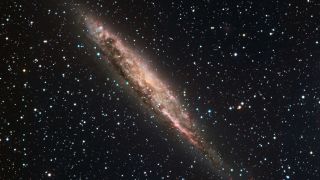
Scientists may have found a powerful new space object: 'It doesn't fit comfortably into any known category'
By Keith Cooper published
Nicknamed 'Punctum,' this puzzling phenomenon is highly energetic, but is only seen in millimeter-wavelength light and cannot be explained by any known object.

Is astronomy safe from organized scientific fraud?
By Keith Cooper published
As space becomes more important to the economy of nations around the world, the risk of paper mills flooding the literature with fraudulent results is increasing.
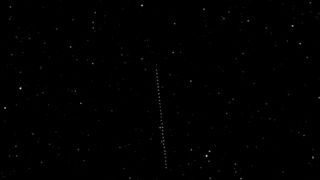
Spacecraft headed to DART asteroid crash site images 2 faint space rocks to boost planetary defense tactics
By Keith Cooper published
The techniques used to target the asteroids could also be employed in tracking hazardous asteroids and interstellar objects.

Hubble Telescope gives us our best look yet at the interstellar comet 3I/ATLAS (video, photo)
By Keith Cooper published
New Hubble Telescope imagery of the interstellar interloper comet 3I/ATLAS reveals a dusty coma and the beginning of a tail.
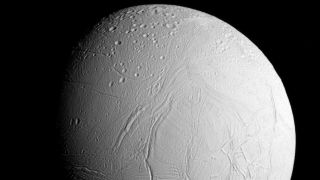
Alien life on Mars or Europa could survive off cosmic rays instead of the sun, scientists suggest
By Keith Cooper published
Electrons released when cosmic rays strike water-ice can provide energy for microbes and facilitate the formation of complex organic molecules.

James Webb Space Telescope revisits a classic Hubble image of over 2,500 galaxies
By Keith Cooper published
The image reveals over 2,500 galaxies, many of which are seen as they were during the first billion years of cosmic history.
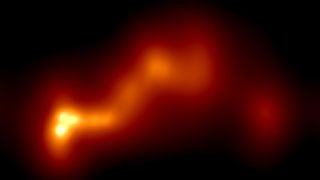
Exotic 'blazar' is part of most extreme double black hole system ever found, crooked jet suggests
By Keith Cooper published
A beam of particles speeding away from a monstrous black hole is severely kinked, suggesting that the black hole is actually part of the most extreme binary system known.

Einstein was wrong (slightly) about quantum physics, new version of the famous double-slit experiment reveals
By Keith Cooper published
A new version of the famous double-slit experiment showed that it's impossible to measure light as both a wave and a particle at the same time, thanks to quantum physics' uncertainty principle.
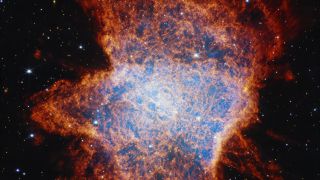
JWST sees beauty in the death of a star, offers a preview of what's in store for our sun
By Keith Cooper published
The James Webb Space Telescope's investigations of the planetary nebula NGC 6072 suggest a second star played a hand in sculpting the death of the primary star.
Breaking space news, the latest updates on rocket launches, skywatching events and more!

